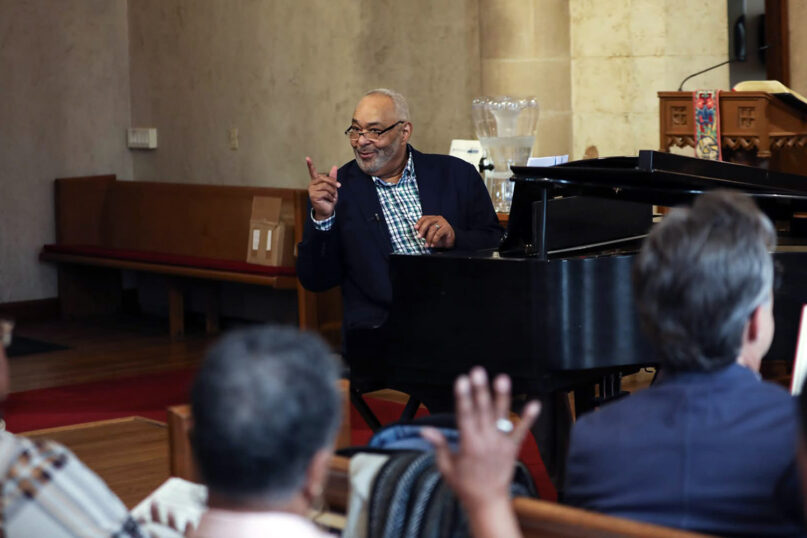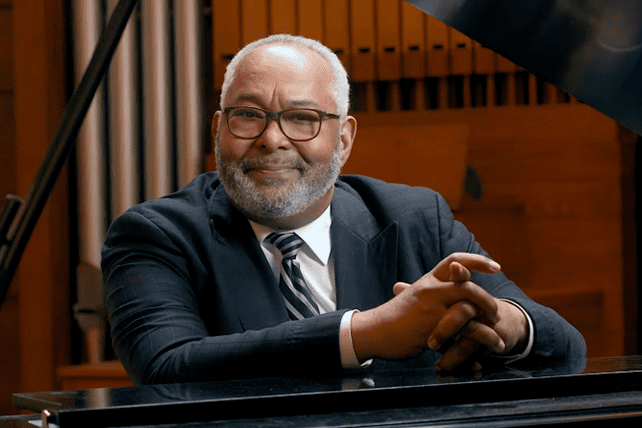“Part of you wanted to sing with him because it was so inspiring, and the other part of you didn’t want to sing because you just wanted to listen to him, the brilliance of what he was playing,” Hehn said.
The African American Church Music Series, with its sheet music offerings, widened the reach of Black church music beyond Black churches, Hehn said.
“It was giving opportunities for all these amazing composers who deserved to be published,” Hehn said. “He made sure they got published, and then that music was then accessible to people who didn’t grow up in the Black church and who maybe couldn’t play in that style by ear.”
In a 2003 interview with Reformed Worship, a journal of the Calvin Institute of Christian Worship, Abbington emphasized that the series was for all singing voices, not just African American congregations.
“It was never intended to be a series exclusively for African Americans, but all the composers are African American,” he said. “This is not ‘our’ music; it is music for the whole church.”
The Samuel DeWitt Proctor Conference, an organization that supports African American ministries, honored Abbington with its “Beautiful Are Their Feet” award in 2019, noting his being raised as a Pentecostal, his role as an organist at prominent Black Baptist churches and his understanding of the power of spirituals as well as modern-day gospel music. The conference’s leaders expressed “sadness and shock” at his death.
“There was no one like him,” said the Rev. Iva Carruthers, general secretary of SDPC, in a statement. “(Dr. Abbington) was not just a teacher or a musician; he was an instrument of God, able to usher in a spirit of hope, power, and joy whenever he did what God had clearly called him to do. As an ethnomusicologist, editor of the African American Church Music Series of GIA Publications and mentor to so many, his contributions to the Proctor Conference were unique.”
The Rev. Jeremiah A. Wright Jr., an SDPC co-founder and close friend of Abbington’s, added: “When you experienced Dr. Abbington in a class setting or in a worship service, your soul would shout in awe or whisper in breathless adoration, ‘To God be the glory for the things He has done!’”
In the inaugural issue of The Yale ISM Review, Yale Divinity School’s Institute of Sacred Music magazine, Abbington argued against those who suggest spirituals are merely “simple little songs” without theological relevance.
“These sacred folk songs are biblically based, theologically astute, culturally relevant, accessible, and provide a tremendous liturgical vehicle for full, conscious, and active participation in worship,” he wrote in 2014.
Abbington also spoke of different genres of church music and the ways they were interpreted by hymn lovers and composers over generations.
He once told Religion News Service that the Rev. Martin Luther King Jr.’s emphasis on hymns in his sermons demonstrated that lyrics became more important to the civil rights leader than the musical notes that accompanied them.

James Abbington at the piano. (Photo courtesy of GIA Publications)

